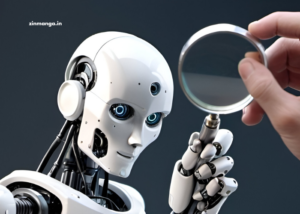In recent years, artificial intelligence (AI) has evolved from a futuristic concept to a transformative technology embedded in various aspects of our daily lives. Whether we realize it or not, AI is increasingly influencing how we live, work, and interact with technology. From virtual assistants to personalized shopping experiences, AI applications are everywhere. This article delves into the numerous ways AI is utilized in everyday applications, its benefits, challenges, and the future of AI in our routine tasks.
What is Artificial Intelligence?
Artificial Intelligence refers to the simulation of human intelligence in machines designed to think and act like humans. AI systems are designed to learn from data, recognize patterns, make decisions, and improve over time through experience. In its most basic form, AI can be classified into three types:
- Narrow AI: Also known as Weak AI, this type of AI is designed to perform a specific task. It’s the most common form of AI used today.
- General AI: This type of AI can understand, learn, and apply intelligence across a broad range of tasks, much like a human being.
- Superintelligent AI: A theoretical form of AI that surpasses human intelligence in virtually every field.
Today, the most prevalent form of AI is Narrow AI, which powers many of the applications we use daily. These systems may not possess general intelligence, but they can execute tasks that were once thought to require human intelligence.
AI in Everyday Life: Key Applications
Smart Assistants
Smart assistants like Amazon’s Alexa, Google Assistant, and Apple’s Siri have become integral parts of many households and workplaces. These voice-activated AIs use natural language processing (NLP) to understand and respond to user queries. From setting reminders and playing music to controlling smart home devices, these assistants simplify daily activities, making them more efficient.
For example, you can ask Alexa to dim the lights or check the weather, and it will respond accordingly. The real-time responses and adaptability of these systems illustrate how AI can provide tangible benefits in everyday life.
Personalized Recommendations
AI plays a major role in personalized content recommendations across various platforms. Streaming services like Netflix, Spotify, and YouTube use AI algorithms to analyze your viewing or listening habits, then recommend new content based on your preferences. This personalized approach saves users time by curating content that aligns with their tastes, making the experience more enjoyable.
Similarly, e-commerce platforms like Amazon and eBay use AI to recommend products based on your browsing history, previous purchases, and even what others with similar preferences have bought. AI-driven recommendation systems help businesses target their customers effectively while enhancing the overall user experience.
Autonomous Vehicles
AI-powered autonomous vehicles, or self-driving cars, represent one of the most significant advancements in modern transportation. Companies like Tesla, Waymo, and Uber have integrated AI technologies such as computer vision, machine learning, and sensors to create vehicles capable of navigating roads without human intervention.
Self-driving cars can recognize objects, follow traffic rules, and make split-second decisions. AI continuously improves the vehicle’s ability to interact with its environment, ensuring safer and more efficient travel. As this technology matures, it could revolutionize transportation, making it safer, faster, and more accessible.
AI in Healthcare
Artificial intelligence is making remarkable strides in the healthcare sector, improving both diagnosis and patient care. AI applications range from robot-assisted surgeries to AI-powered diagnostic tools that analyze medical data.
For instance, AI systems can detect early signs of diseases such as cancer by analyzing medical images like X-rays, MRIs, and CT scans. In some cases, AI has been found to detect abnormalities more accurately than human doctors. Machine learning algorithms are also used to predict patient outcomes and recommend personalized treatment plans, improving the overall quality of healthcare services.
Moreover, AI-powered chatbots like Babylon Health provide immediate consultations for non-emergency health concerns, helping reduce the burden on healthcare professionals and offering timely advice to patients.
AI in Retail and Customer Service
In retail, AI has transformed both online and in-store shopping experiences. Chatbots and virtual assistants powered by AI can now handle customer inquiries, guide users through the purchasing process, and provide product recommendations.
In physical stores, AI-powered systems track customer behavior, enabling businesses to optimize store layouts and inventory management. AI-driven algorithms also help retailers understand buying patterns, which leads to more accurate inventory forecasting, ensuring that products are available when customers need them.
For example, AI tools used in inventory management predict when products will run out of stock and automatically reorder items, preventing shortages. This improves operational efficiency and customer satisfaction.
AI in Finance
The finance industry has long been an early adopter of AI technologies. Machine learning algorithms are employed in fraud detection, risk management, and personalized banking services. For example, AI-driven systems analyze transaction patterns to detect unusual activity that could signal fraudulent transactions.
Moreover, AI-powered robo-advisors are becoming increasingly popular. These tools use machine learning algorithms to provide personalized investment advice based on individual risk profiles and market conditions. Robo-advisors help democratize investment opportunities, offering affordable and accessible financial advice.
Smart Home Devices
Smart home technology, powered by AI, is another way artificial intelligence is becoming an integral part of daily life. Devices like smart thermostats (e.g., Nest), AI-powered security cameras, and smart locks all use AI to automate functions based on user preferences.
For instance, a smart thermostat can learn your temperature preferences over time and adjust itself accordingly, ensuring comfort while optimizing energy efficiency. Similarly, AI-powered security cameras can distinguish between human movement and other objects, sending alerts only when necessary.
AI in Education
AI is also transforming the education sector, providing personalized learning experiences for students. AI-based platforms like Duolingo use machine learning to adapt lessons to a student’s learning pace and style. This allows for more efficient learning and greater retention.
Moreover, AI tools can help identify students who might be struggling and recommend additional resources or support. Intelligent tutoring systems are designed to provide personalized assistance, making education more accessible and effective.
AI in Entertainment and Media
In the entertainment and media industries, AI is being used to create more immersive and engaging content. Deepfake technology has gained attention for its ability to generate realistic videos, while AI-generated music and storylines are starting to emerge as potential tools for content creators.
Moreover, AI-driven content creation platforms help filmmakers and game developers enhance visual effects, optimize storytelling, and even predict the success of films based on data analysis.
Benefits of AI in Everyday Applications
The integration of AI into everyday applications offers numerous benefits, including:
- Increased Efficiency: AI automates repetitive tasks, freeing up human time for more complex and creative work. This leads to greater productivity both in personal and professional settings.
- Cost Savings: By optimizing processes, AI helps businesses reduce operational costs. For example, predictive maintenance powered by AI can detect issues in equipment before they lead to costly breakdowns.
- Personalization: AI enables highly personalized experiences across various sectors, from personalized shopping recommendations to tailored educational content.
- Improved Decision Making: AI’s ability to analyze large datasets and recognize patterns leads to more informed and data-driven decision-making. This is particularly valuable in fields like healthcare, finance, and marketing.
- Accessibility: AI has the potential to make services more accessible to people with disabilities. For example, AI-driven tools like voice assistants help visually impaired individuals navigate daily tasks.
Challenges of AI in Everyday Applications
While AI brings numerous benefits, it also presents certain challenges:
- Privacy Concerns: AI systems often rely on large amounts of personal data, raising concerns about privacy and data security. Ensuring the safe handling of data is crucial in AI-powered applications.
- Job Displacement: As AI automates more tasks, there is concern about job loss in certain industries. Although AI creates new job opportunities, the transition can be difficult for workers in fields affected by automation.
- Bias and Fairness: AI systems are only as good as the data they are trained on. If the training data is biased, AI algorithms can perpetuate and amplify those biases, leading to unfair outcomes.
- Dependence on Technology: Over-reliance on AI could lead to a lack of critical thinking and problem-solving skills. It’s important for humans to remain actively engaged in decision-making processes.
The Future of AI in Everyday Applications
The future of AI in everyday applications is exciting and full of potential. As AI continues to evolve, we can expect even more advanced applications that will transform our lives in ways we can’t yet fully imagine. Some potential advancements include:
- Fully autonomous vehicles becoming the norm, revolutionizing transportation and reducing road accidents.
- AI-driven healthcare solutions providing real-time, remote health monitoring and personalized treatments.
- Enhanced AI-powered education tools offering tailored learning experiences for all types of students.
- More seamless integration of AI into smart homes, making everyday tasks like grocery shopping, cooking, and cleaning even easier.
As AI technology continues to advance, its role in our everyday lives will only increase, shaping a future where intelligent systems work alongside humans to improve efficiency, safety, and quality of life.
Conclusion
Artificial intelligence is no longer a distant concept but a real force that is reshaping how we live, work, and interact with technology. From virtual assistants to personalized shopping and healthcare applications, AI is woven into the fabric of daily life. While challenges such as privacy concerns and potential job displacement remain, the benefits of AI—efficiency,








